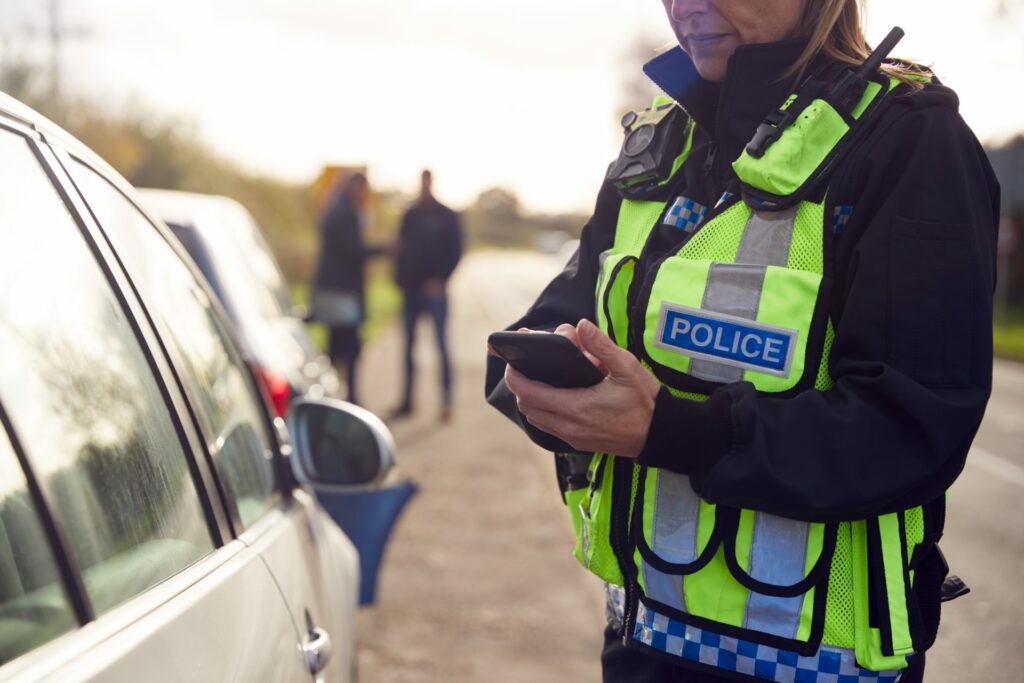Do I Have to Answer Questions from Police?

What if the Police Pull Me Over?
In many states, you must comply with a request to be pulled over by the police. If you choose not to comply, this action almost always results in legal issues. In most cases, you must also provide proof of who you are through verbal communication or your personal identification, registration, or driver’s license.
You are not required to answer questions from the police during a traffic stop. You can request that you make a statement at a later date with an attorney present if you choose to. Your right to choose this option is in accordance with your constitutional rights, specifically your fourth and fifth Amendments rights.
What if I’m Arrested?
Your right to remain silent even if you are arrested exists. You may have heard of a Miranda Warning, which requires police officers and legal representatives to inform you of your rights upon arrest.

Part of your Miranda Rights is that you can choose to remain silent and have a right to do so. You can choose to delay answering questions until you have an attorney present so as not to implicate yourself accidentally in a criminal case.
How Can I Ensure I’m Invoking My Rights?
It is important to note that you must clearly specify that you wish to remain silent. You can do this simply by stating that you won’t be answering questions immediately and that you want to make a statement at a later time. You can also state that you refuse to make a statement and wish to consult with your lawyer before making a statement. A simple “I claim my Miranda rights” will also suffice.
Why is this important? In most cases, police officers and investigators have true intentions and wish to get to the bottom of the issues at hand while placing blame on the right people. However, no one is perfect. If you are questioned regarding a case, you may unintentionally put yourself in an uncompromising position with police without meaning to by answering questions without careful thought or guidance.
Don’t Help the Police Make a Case Against You
In some cases, police will ask questions to determine whether or not they have enough information to arrest someone. Don’t help the police make a case against you without meaning to. If you give them the answers they are looking for, whether innocent or not, you may have placed yourself in the middle of the crosshairs of their investigation, even with the purest intentions.

It is best to invoke your rights and consult an experienced attorney who can provide professional guidance on questions and how to answer them without inadvertently incriminating yourself or others. Think of it as working with a professional who has vast knowledge and experience in an area where you may have limited skills based on little experience in questioning from the police.
What if I Already Spoke to the Police and Wished I Hadn’t?
You are not alone if you have already spoken to the police and fear you may have said too much or spoken incorrectly. There is a reason constitutional rights are in place that specifically deals with what is said to the police and your right to remain silent.
Stress and anxiety are common when it comes to speaking with police, regardless of the situation. Maybe it comes from fearing authority, or perhaps it comes from adrenaline, but we don’t always say the right things, and in some cases, this can result in us being placed under arrest while innocent.
Criminal defense lawyers are there to help in situations such as these. You can retain an experienced lawyer, and they can work with you to discuss your options and become a fierce advocate for you and your family.
When Can I Request That an Attorney Be Present?
Generally speaking, you can request an attorney be present at all “critical stages” during the process. Critical stages can include pre-trial, during the trial, and post-trial hearings. Critical stages can also include during interrogations when you request an attorney. The first court appearance is also a critical stage and can be essential in having proper representation to guide you through the questions, how to plead, and how to move forward.

Think of working with an experienced criminal defense attorney to level the playing field. Unless you are the exception, you likely don’t have years of experience dealing with criminal cases and may be unsure how to navigate the process. Criminal defense lawyers have spent years training for these cases and likely have several years of experience helping their clients with their criminal cases. This training and experience give them the necessary skill set and perspective that is vital to helping to ensure your case is handled appropriately from questioning to the end of the case.
Don’t hesitate to invoke your rights and consult an experienced attorney. It could be the best decision you have ever made for your future and your family’s peace of mind. Call our office at (702) 901-6302 to learn how our team can best help you and what your options are.
We look forward to serving you.What if the Police Pull Me Over?
In many states, you must comply with a request to be pulled over by the police. If you choose not to comply, this action almost always results in legal issues. In most cases, you must also provide proof of who you are through verbal communication or your personal identification, registration, or driver’s license.
You are not required to answer questions from the police during a traffic stop. You can request that you make a statement at a later date with an attorney present if you choose to. Your right to choose this option is in accordance with your constitutional rights, specifically your fourth and fifth Amendments rights.
What if I’m Arrested?
Your right to remain silent even if you are arrested exists. You may have heard of a Miranda Warning, which requires police officers and legal representatives to inform you of your rights upon arrest.
Part of your Miranda Rights is that you can choose to remain silent and have a right to do so. You can choose to delay answering questions until you have an attorney present so as not to implicate yourself accidentally in a criminal case.
How Can I Ensure I’m Invoking My Rights?
It is important to note that you must clearly specify that you wish to remain silent. You can do this simply by stating that you won’t be answering questions immediately and that you want to make a statement at a later time. You can also state that you refuse to make a statement and wish to consult with your lawyer before making a statement. A simple “I claim my Miranda rights” will also suffice.
Why is this important? In most cases, police officers and investigators have true intentions and wish to get to the bottom of the issues at hand while placing blame on the right people. However, no one is perfect. If you are questioned regarding a case, you may unintentionally put yourself in an uncompromising position with police without meaning to by answering questions without careful thought or guidance.
Don’t Help the Police Make a Case Against You
In some cases, police will ask questions to determine whether or not they have enough information to arrest someone. Don’t help the police make a case against you without meaning to. If you give them the answers they are looking for, whether innocent or not, you may have placed yourself in the middle of the crosshairs of their investigation, even with the purest intentions.
It is best to invoke your rights and consult an experienced attorney who can provide professional guidance on questions and how to answer them without inadvertently incriminating yourself or others. Think of it as working with a professional who has vast knowledge and experience in an area where you may have limited skills based on little experience in questioning from the police.
What if I Already Spoke to the Police and Wished I Hadn’t?
You are not alone if you have already spoken to the police and fear you may have said too much or spoken incorrectly. There is a reason constitutional rights are in place that specifically deals with what is said to the police and your right to remain silent.
Stress and anxiety are common when it comes to speaking with police, regardless of the situation. Maybe it comes from fearing authority, or perhaps it comes from adrenaline, but we don’t always say the right things, and in some cases, this can result in us being placed under arrest while innocent.
Criminal defense lawyers are there to help in situations such as these. You can retain an experienced lawyer, and they can work with you to discuss your options and become a fierce advocate for you and your family.
When Can I Request That an Attorney Be Present?
Generally speaking, you can request an attorney be present at all “critical stages” during the process. Critical stages can include pre-trial, during the trial, and post-trial hearings. Critical stages can also include during interrogations when you request an attorney. The first court appearance is also a critical stage and can be essential in having proper representation to guide you through the questions, how to plead, and how to move forward.
Think of working with an experienced criminal defense attorney to level the playing field. Unless you are the exception, you likely don’t have years of experience dealing with criminal cases and may be unsure how to navigate the process. Criminal defense lawyers have spent years training for these cases and likely have several years of experience helping their clients with their criminal cases. This training and experience give them the necessary skill set and perspective that is vital to helping to ensure your case is handled appropriately from questioning to the end of the case.
Don’t hesitate to invoke your rights and consult an experienced attorney. It could be the best decision you have ever made for your future and your family’s peace of mind. Call our office at (702) 901-6302 to learn how our team can best help you and what your options are.
We look forward to serving you.
